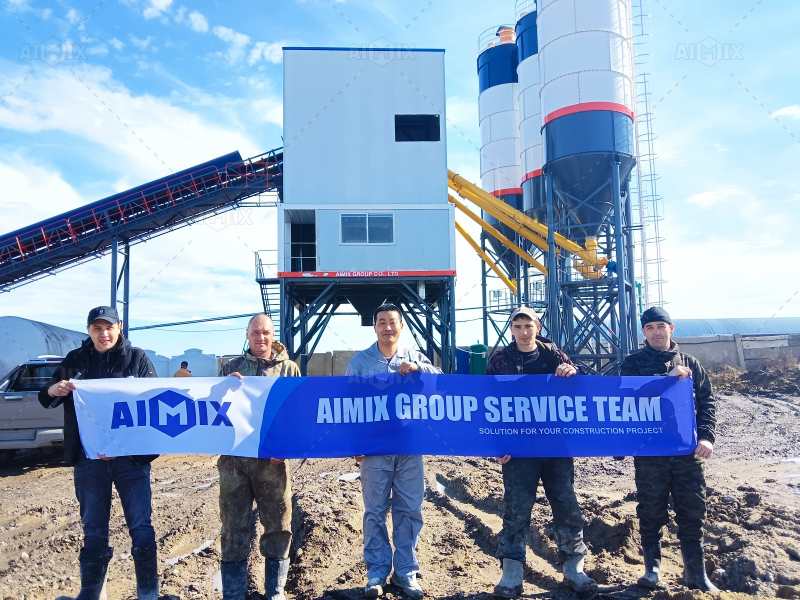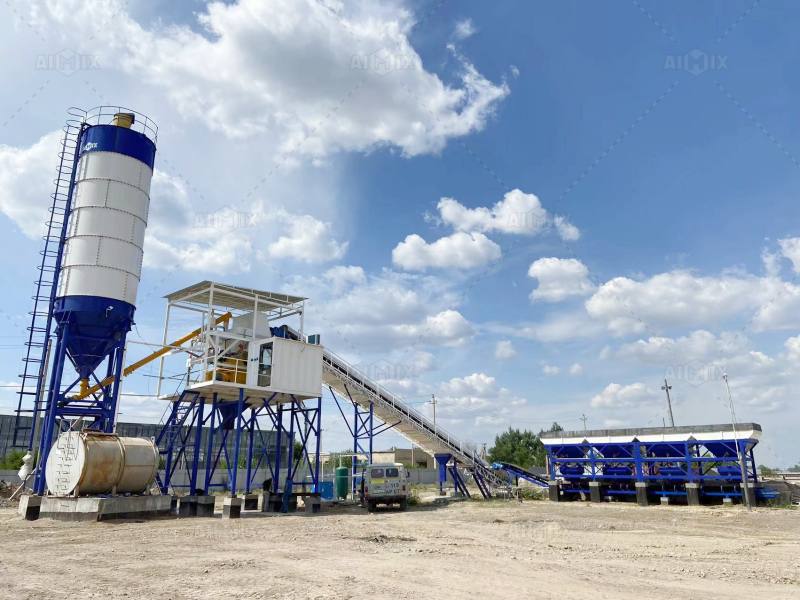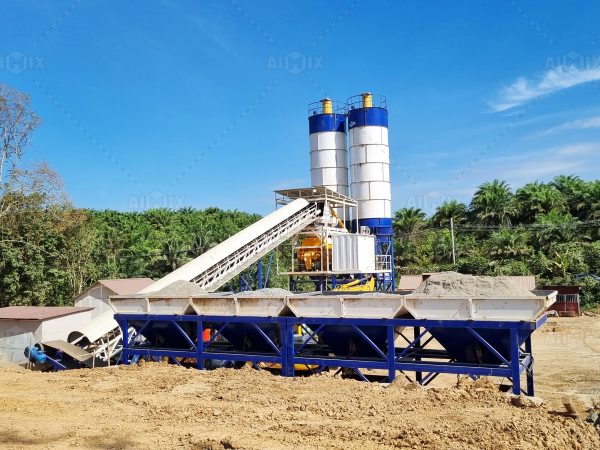As construction and infrastructure projects continue to grow globally, the demand for efficient and reliable concrete batching plants remains strong. These plants are essential for producing high-quality concrete in bulk for projects ranging from small residential buildings to massive infrastructure developments. As we look ahead to 2025, it’s important to understand the factors influencing concrete batching plant prices, particularly as the industry shifts toward more advanced, cost-effective, and environmentally friendly solutions. This article explores the price trends of various types of batching plants, including mobile batching plants, ready-mix concrete plants, and stationary plants, and what to expect in 2025.

The Different Types of Batching Plants
Concrete batching plants come in several different types, each suited for specific operational needs and project requirements. The most common types are stationary plants, mobile batching plants, and ready-mix concrete plants. Understanding the differences between them and how they impact pricing is key to determining the most cost-effective option for your business. Know more information about different types of batching plant now.
1. Stationary Concrete Batching Plants
Stationary concrete batching plants are designed for large-scale, long-term projects. They are ideal for sites with high concrete demand, such as road construction, bridges, and large commercial developments. These plants are fixed in one location and often have a higher capacity than mobile plants, ranging from 60 to 240 cubic meters per hour.
The price of stationary batching plants varies based on capacity, technology, and additional features like automation, remote monitoring, and storage silos. The more advanced the plant, the higher the cost. In 2025, prices for stationary plants are expected to increase slightly due to rising raw material costs and the growing demand for eco-friendly technology that reduces emissions and enhances energy efficiency.
2. Mobile Concrete Batching Plants
Mobile batching plants have become increasingly popular in recent years due to their flexibility and convenience. Unlike stationary plants, mobile plants can be moved from one location to another, making them ideal for smaller projects or locations with limited space. These plants can produce concrete on-site, which reduces transportation costs and ensures that the mix is fresh and tailored to the project’s specific needs.
The price of mobile batching plants is typically lower than stationary plants due to their smaller capacity and more compact design. However, in 2025, we can expect mobile batching plant prices to rise modestly. This is due to technological advancements that include automation, digital controls, and enhanced mobility features. On average, mobile batching plants can cost anywhere between $30,000 to $150,000, depending on the model and features.
3. Ready-Mix Concrete Plants
Ready-mix concrete plants are central to the production of pre-mixed concrete for delivery to construction sites. These plants are usually large-scale operations that can produce large volumes of high-quality concrete for a range of construction applications. The concrete is mixed according to customer specifications and delivered via mixer trucks.
Ready-mix concrete plant prices vary depending on the scale of production and the specific features required. Prices for ready-mix plants in 2025 are expected to increase due to the growing demand for automated systems and environmentally conscious practices, such as water recycling and energy-efficient operations. On average, ready mix concrete plant prices range from $100,000 to $500,000, depending on capacity and customization options.

Factors Influencing Concrete Batching Plant Prices in 2025
Several factors are expected to affect concrete batching plant prices in 2025, including technological advancements, global supply chain issues, and environmental considerations.
1. Technological Advancements
In recent years, the concrete batching plant industry has witnessed significant innovations, particularly in automation and digital technology. Advanced batching systems, automated controls, and remote monitoring systems are becoming standard in modern plants. These innovations help to improve the efficiency, accuracy, and safety of concrete production, but they also come with higher upfront costs.
For example, mobile and stationary plants with integrated smart technology allow for real-time data analysis, predictive maintenance, and optimized mixing processes. As more manufacturers integrate these technologies into their products, prices for batching plants are expected to rise. However, these investments will result in long-term savings and increased productivity.
2. Raw Material and Production Costs
The cost of raw materials such as steel, cement, and electrical components plays a significant role in determining the final price of a batching plant. Global supply chain disruptions, inflation, and increased demand for construction equipment are all expected to drive up material costs in 2025. As a result, the price of concrete batching plants may increase, especially for those with high production capacities or specialized equipment.
3. Environmental and Regulatory Compliance
As environmental concerns continue to rise, many countries are implementing stricter regulations on emissions and energy consumption. This has led to a demand for eco-friendly and energy-efficient batching plants. In 2025, the price of batching plants that meet these new regulations is expected to be higher due to the advanced technology required to comply with environmental standards.
Features such as dust control systems, water recycling capabilities, and low-emission engines are becoming increasingly common in modern batching plants. While these features come with additional costs, they are becoming necessary for businesses looking to meet regulatory requirements and reduce their environmental footprint.

Mobile Batching Plant Price Trends in 2025
Mobile batching plants are highly versatile and can be used in a wide variety of construction projects, particularly those that require frequent relocation. Due to their mobility, ease of setup, and compact design, mobile batching plants are in high demand. In 2025, mobile batching plant prices are expected to increase slightly due to innovations in technology and the demand for more advanced systems.
For example, plants with fully automated control systems, improved mix design accuracy, and advanced remote monitoring features will likely cost more than basic models. However, businesses investing in mobile batching plants will benefit from the ability to operate across different job sites with minimal downtime, making them a worthwhile investment in the long term.
Ready-Mix Concrete Plant Price Trends in 2025
Ready-mix concrete plants are essential for high-volume construction projects that require large quantities of concrete. As the demand for ready-mix concrete continues to rise, so does the demand for more advanced and efficient ready-mix concrete plants. In 2025, the price of ready-mix plants is expected to rise due to the growing need for automation, higher energy efficiency, and more precise mix design.
In addition, ready-mix plants with advanced features such as automated batching, digital controls, and environmental compliance are expected to be priced at the higher end of the spectrum. However, these plants provide businesses with increased productivity, fewer mistakes in mix design, and lower labor costs, which ultimately leads to a higher return on investment.
Conclusion
As we look toward 2025, concrete batching plant prices are expected to rise due to technological advancements, raw material costs, and stricter environmental regulations. However, businesses that invest in mobile batching plants, ready-mix concrete plants, or stationary plants will benefit from enhanced efficiency, lower operational costs, and the ability to meet the demands of modern construction projects. By understanding the factors that influence batching plant prices and making informed decisions, businesses can ensure that they get the best value for their investment while staying ahead in a rapidly evolving industry.